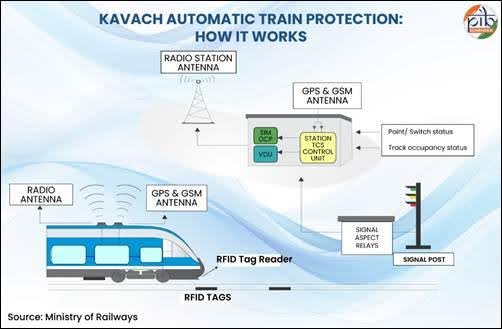



Insurance Surety Bonds (ISBs) are a significant financial reform, offering a collateral-free alternative to traditional bank guarantees for government contractors. Driven by the IRDAI, ISBs aim to boost infrastructure development, ensure project performance, mitigate risks, and promote financial efficiency.

Copyright infringement not intended
PICTURE COURTESY: FINANCIALEXPRESS
Insurance surety bonds for National Highways Authority of India (NHAI) contracts cross Rs 10,000 crore
Definition: ISBs are financial instruments where an insurance company acts as a ‘surety,’ guaranteeing that a contractor (principal) will fulfill contractual obligations to the obligee (e.g., NHAI). If the contractor fails, the surety covers losses, ensuring project completion.
Three-Party Agreement:
The Insurance Regulatory and Development Authority of India (IRDAI) regulates and oversees the development of surety insurance business in India.
Cost-Effectiveness: Require minimal or no collateral, freeing up contractor funds for business growth.
Financial Security: Provides a guarantee to NHAI that contractual terms will be met, with the surety covering losses in case of default.
Liquidity Boost: Reduces contractor debt by eliminating high collateral requirements.
Flexibility: Suitable for diverse contractors in a volatile market, supporting small and medium enterprises (SMEs).
Source: PIB
|
PRACTICE QUESTION Q. What is the key distinction between a surety bond and an insurance policy? A) A surety bond protects the Principal, while insurance protects the Insurer. B) A surety bond involves three parties, whereas insurance involves only two. C) In a surety bond, the Surety must seek reimbursement from the Principal for claims paid. D) Both B and C are correct. Answer: D Unlike a two-party insurance policy, a surety bond is a three-party agreement. A major difference is that if the surety pays a claim, the principal is liable to repay the surety. Insurance policyholders do not have to repay the insurer for a claim. |
It's a financial guarantee ensuring that a contractor fulfills their contractual obligations for government projects.
The Insurance Regulatory and Development Authority of India (IRDAI).
It is a type of insurance product, but it is a guarantee, not a risk-transfer mechanism in the traditional sense, as the principal is liable for the losses.




© 2026 iasgyan. All right reserved